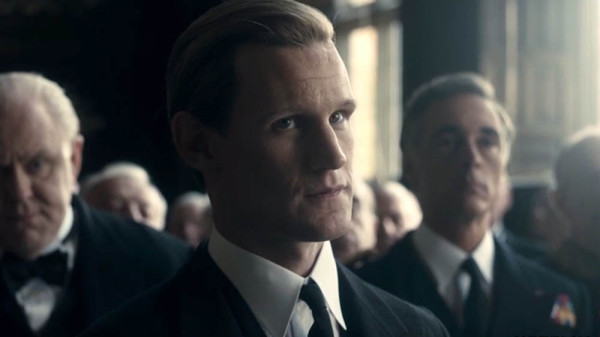A mere four episodes in, and we have what feels like The Crown’s first filler episode.
That’s perhaps an unfair description – and perhaps an inaccurate one, too. It may be closer to the truth to describe ‘Act of God’ as an episode of The Crown which is trying to be a different programme entirely; this is, surely, the episode in which Claire Foy has had the least screen time thus far, with Elizabeth not having any lines until the twenty-minute mark, and having fairly limited appearances for the rest of the episode’s duration.
Instead we are presented with another attempt at The West Wing in 1950s England, focusing on the political machinations of the Tory party and Clem Attlee, with Churchill caught in the middle of it.
Is it effective? That’s debatable.
Certainly, it’s clear enough that John Lithgow is a talented actor, and his portrayal of Churchill is excellent – but the material he’s working with remains feeling somewhat lacking. In part, this is a result of the style of The Crown; it’s very much a programme that operates within the school of displaying its themes upfront.
Accordingly, then, at times it feels as though it lacks nuance or subtlety – from discussions of Elizabeth’s duty to, in this case, deliberations on Churchill’s age and efficacy, it often appears very surface level. And, arguably speaking, it is – while there’s a lot going on, the workings of the drama are laid open and entirely clear for all to see.
Here, then, it’s very clear what’s going on – the death of Kate Philips as Venetia Scott was telegraphed early, and entirely unsurprising when the moment came. It’s one of the few attempts on behalf of the episode to actually ground the story in terms of the impact of the smog on the public, rather than political infighting or royal squabbles.
And yet it was largely ineffective – not least because it was little more than a cheap fridging, as The Crown here falls into the old trope of killing a female character to develop a male one. It’s particularly lazy writing, made all the more evident by The Crown’s tendency to wear its themes on its sleeve.
A little cursory research, however, revealed just how manufactured this all was. Scott was an entirely fictitious character whose means of death was both unlikely and overdramatised; by this point, public transport had been called off to prevent deaths exactly such as this. Further, there’s no evidence that the event was the impetus for any political conspiracy on this level.
While it’s missing the point somewhat to criticise a drama for the occasional historical inaccuracy, it’s perhaps indicative of a wider problem that The Crown has to go to such lengths in making something out of nothing just to fill an hour.
And so the final title card informing us how many people died feels entirely unearned, little more than a mawkish and trite attempt at stirring emotion. Particularly when juxtaposed with the last shot of Philip flying away, making a glib comment about his new Dukedom; never moreso have our main characters appeared more out of touch with reality. And never moreso have they been so difficult to like – at times it feels as though the audience is expected to sympathise more with Philip being curtailed, or Elizabeth having to remain impartial, rather than the London public.
Despite how unsubtle The Crown often is, it’s never entirely clear what the main emotional arc is supposed to be – and the episode suffers as a result.
![]()
All 10 episodes are available to watch on Netflix now.
Follow Alex Moreland on Twitter here.
Visit Alex Moreland’s website here.
What do you think of the episode? Let us know below…

